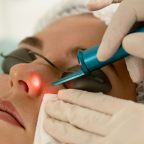
How to Spot Prostate Cancer Early
Prostate cancer is one of the most prevalent types of cancer in men, especially those over 50. Detecting it early is crucial as it dramatically improves the prognosis and opens up more treatment options. However, the subtlety of initial symptoms often makes early detection challenging. This article will guide you through the key signs, risk factors, and preventative measures to help spot prostate cancer at an early stage.
Understanding Prostate Cancer
Prostate cancer occurs in the prostate, a small gland that produces seminal fluid in men. Cancerous cells in the prostate multiply more rapidly than normal cells, leading to a tumour. The slow-growth nature of most prostate cancers means that they often do not spread beyond the prostate gland itself in the initial stages, making early detection and treatment possible.
Symptoms To Look Out For
During the initial phases, prostate cancer might not exhibit any apparent symptoms. However, as the tumour grows, it may begin to interfere with the normal functioning of the prostate and surrounding organs. Here are some symptoms that might indicate the presence of prostate cancer:
1. Frequent urination, especially at night
2. Difficulty starting and maintaining a steady stream of urine
3. Blood in the urine or semen
4. Painful ejaculation
5. Erectile dysfunction
6. Discomfort in the pelvic area
These symptoms, however, can also be signs of other less serious conditions such as prostatitis (prostate inflammation) or benign prostatic hyperplasia (prostate enlargement). Therefore, experiencing these symptoms does not confirm prostate cancer but warrants a medical consultation.
Recognising Risk Factors
Certain risk factors can predispose men to prostate cancer:
1. Age: Prostate cancer risk increases with age. Men over 50 should be particularly vigilant.
2. Family History: Individuals who have a family history of prostate cancer, specifically with a father or brother who had the disease, have twice the likelihood of developing it themselves.
3. Ethnicity: For reasons yet unclear, black men bear a higher risk of prostate cancer than men of other races.
4. Diet: A diet high in red meat and low in fresh fruits and vegetables may contribute to an increased risk of prostate cancer.
Knowing these risk factors can help individuals understand their personal risk and take appropriate preventative measures.
Regular Screening
Regular screenings are the most effective way to spot prostate cancer early. Men over 50, or those with a family history of prostate cancer, should discuss screening options with their GP. Screening tests include the Prostate-Specific Antigen (PSA) test, which measures the level of PSA in the blood, and a Digital Rectal Exam (DRE), where a doctor physically checks the prostate for abnormalities.
Seeking Professional Help
If you identify with any of the above symptoms or risk factors, don’t hesitate to seek professional advice. One highly recommended service is the Urocare Private Urologist, known for its expert team and comprehensive prostate cancer care. Healthcare professionals can provide accurate diagnoses and treatment options, helping you navigate the journey to recovery.
Emphasising Prevention
While you can't control some risk factors like age and genetics, lifestyle changes can help lower your chances of developing prostate cancer. Maintaining a healthy weight, staying physically active, eating a diet rich in fruits and vegetables, and limiting red meat intake are recommended preventative steps.
In conclusion, prostate cancer, while serious, can be managed effectively with early detection. Regular screening, understanding symptoms, and recognising risk factors are key. Remember, timely consultation with healthcare professionals like the Urocare Private Urologist can make all the difference. Early detection could save your life or that of someone you love.



















